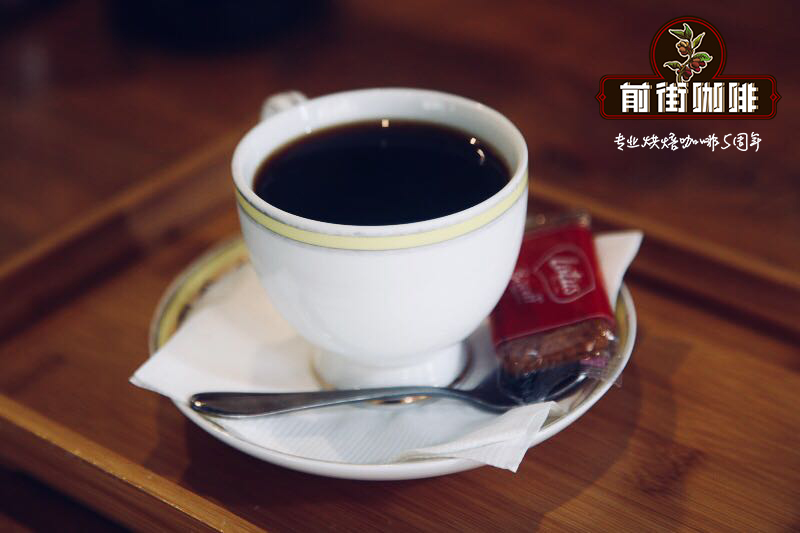Is Burmese coffee only instant? What brand of Burmese coffee beans is good for Burmese coffee beans?

For information, please follow the coffee workshop (Wechat official account cafe_style)
Myanmar is located in the west of Southeast Asia, with a land area of more than 670000 square kilometers, which is the largest country in the China-India Peninsula. Among the ten ASEAN countries, it is second only to Indonesia. Myanmar is the only country in the world with the two most populous countries, that is, India and China, and it is also the only channel for China to reach the Indian Ocean by land. Because of its unique geographical location, the quality of Burmese coffee is basically more than 85 points, ranking in the forefront of high-quality coffee in the world. Among the Burmese coffee, the coffee beans in Dongzhi are of the highest quality. Myanmar has a 2200-kilometer border with China. The traditional friendship between China and Myanmar has a long history. With the rapid progress of democratization in Myanmar and the gradual end of international trade sanctions, Burmese coffee has gradually entered the Chinese market and is favored by China's growing coffee market. Minghella Coffee (Myagola Coffee) has become the only high-end Burmese coffee brand in the Chinese market among Burmese coffee brands. Myanmar Minghella Group (Myagola Group) attaches great importance to the Chinese coffee consumption market, and according to its investment and marketing effect, it is expected to become another dark horse for many Chinese imported mid-and high-end coffee brands.
Because of Myanmar's unique geographical location, the quality of Burmese coffee is basically above 85 points. At a coffee promotion meeting held in Washington in August last year, Burmese coffee conquered many Americans with its strong aroma and mellow taste and was snapped up directly. Even countries such as Britain and Switzerland, which have high requirements for coffee, are snapping up Burmese coffee.
Last season, Myanmar exported 200 tons of coffee beans at prices ranging from $4000 to $6000 per ton. As a result, Myanmar has earned 800000-1.2 million US dollars (about 1 billion-1.6 billion kyat) in foreign exchange for coffee alone.
In the future, as long as the government makes some efforts in planting technology to increase the output of coffee per unit area, it is believed that the benefits brought by Myanmar's coffee industry will be even greater.
Myanmar has a vast land area and fertile soil, so it is very suitable for the development of agriculture, such as coffee, rice, sesame, beans and so on. Among them, the coffee growing industry bears the brunt. Burmese coffee is welcomed by more and more people all over the world. The sharp rise in sales directly promotes the growth of Myanmar's GDP, so people pay more and more attention to it.
According to U Win Aung, president of Myanmar's Southern Shan State Coffee Association, coffee beans produced in Ya'an in southern Shan State are exported to China in March each year, mainly undertaken by Myanmar Minghella Investment Group (Myagola International Investment Group Co., Ltd), the New Light of Myanmar reported. It is reported that there are 125 villages in Ya'an area in the south of Shan State, with coffee planting area of more than 6000 acres. In the past, the market was not smooth due to the backwardness of planting and processing technology, low quality and other factors. Since the establishment of the local coffee association in 2013, technical improvements and additional processing equipment have been carried out, resulting in a significant improvement in coffee production and quality. Coffee production was 495 tons in fiscal year 14 in 2013 and 660 tons in fiscal year 15 in 2014, and began to accept large foreign orders. As the local coffee sells well abroad, it also improves the living standards of local farmers.
Important Notice :
前街咖啡 FrontStreet Coffee has moved to new addredd:
FrontStreet Coffee Address: 315,Donghua East Road,GuangZhou
Tel:020 38364473
- Prev

How does Malawian coffee taste? What's the difference between Malawi and Kenya? Introduction to manors in Malawi
For information, please follow the Coffee Workshop (Wechat official account cafe_style) Malawi, the official full name of the Republic of Malawi (Zichewa: Dziko la Mala?i; English: Republic of Malawi) is a landlocked country located in southeastern Africa, bordering Zambia, Mozambique and Tanzania. The correct position is between latitude 945-1716 south and longitude 3235-3524 east. First
- Next

Is Blue Mountain Coffee really the best in the world? How much is the authentic Blue Mountain coffee?
For information, please follow the coffee workshop (Wechat official account cafe_style) Blue Mountain Coffee, which is made by brewing coffee beans from the Blue Mountains of Jamaica. According to the grade, it is divided into Jamaica Blue Mountain Coffee and Jamaican Alpine Coffee. The Blue Mountains are located in the east of the island of Jamaica (Jamaica), because the mountain is surrounded by the Caribbean Sea and the sun shines directly on clear days.
Related
- Does Rose Summer choose Blue, Green or Red? Detailed explanation of Rose Summer Coffee plots and Classification in Panamanian Jade Manor
- What is the difference between the origin, producing area, processing plant, cooperative and manor of coffee beans?
- How fine does the espresso powder fit? how to grind the espresso?
- Sca coffee roasting degree color card coffee roasting degree 8 roasting color values what do you mean?
- The practice of lattes: how to make lattes at home
- Introduction to Indonesian Fine Coffee beans-- Java Coffee producing area of Indonesian Arabica Coffee
- How much will the flavor of light and medium roasted rose summer be expressed? What baking level is rose summer suitable for?
- Introduction to the characteristics of washing, sun-drying or wet-planing coffee commonly used in Mantenin, Indonesia
- Price characteristics of Arabica Coffee Bean Starbucks introduction to Manning Coffee Bean Taste producing area Variety Manor
- What is the authentic Yega flavor? What are the flavor characteristics of the really excellent Yejasuffi coffee beans?

